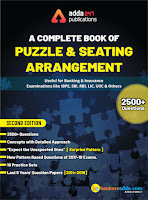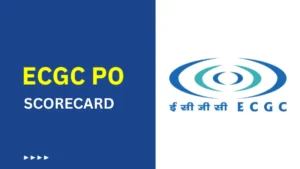IBPS RRB Clerk Reasoning Quiz
Directions (1-5): Study the information carefully and answer the questions given below.
Nine persons P, Q, R, S, T, U, V, W and X are sitting in a circle but not necessary in same order. All of them face inside.
R sits third to the right of P. Two persons sit between R and Q. U sits second to the right of X, who is not immediate neighbor of P. Two persons sit between T and W. S is third to the left of V. S is not immediate neighbor of T and P who does not sit immediate right of V.
Q1. How many persons are sitting between S and P when counted from left of P?
Q2. Who among the following sits 4th to right of W?
Q3. How many persons sit between Q and X when counted right of Q?
Q4. Who sits second to the right of U?
Q5. If W and T interchange their positions, then who sits second to the right of W ?
Directions (6-8): Study the information carefully and answer the questions given below.
Six persons A, B, C, D, E and F sit in a linear row(but necessary in the same way) and all of them facing north.
D sits on of the extreme end of the row. More than two persons sit between D and C. E is immediate neighbor of A and B, who is an immediate left of F. D is not immediate adjacent to A.
Q6. How many persons sit between A and F?
Q7. Who among the following person sit third to the right of B?
Q8. Who among the following persons sit at extreme ends of row?
Q9. Sourav ranked 21th from the top and 19th from the bottom in a class. How many students are there in the class?
Q10. If in the number 56298761, all digits are arranged in increasing order from left to right then how many digit remain same place in the new arrangement?
Obtained number- 12566789
Directions (11-15): Following questions are based on the five three-digit numbers given below.
792 813 541 462 692
Q11. If the positions of the second and the third digits of each of the numbers are interchanged then, how many even numbers will be formed?
Q12. If all the digits in each of the numbers are arranged in increasing order within the number then, which of the following number will become the second lowest in the new arrangement of numbers?
Q13. If one is added to the second digit of each of the numbers and one is subtracted to the third digit of each number then, how many numbers thus formed will be divisible by three in new arrangement?
Q14. What will be the difference when Second digit of the 3rd lowest number is multiplied with the third digit of the highest number and third digit of the 2nd highest number is multiplied with the second digit of the lowest number?
Q15. If all the numbers are arranged in ascending order from left to right then, which of the following will be the sum of all the three digits of the number which is 2nd from the right in the new arrangement?
You may also like to Read:





 GA Capsule for SBI Clerk Mains 2025, Dow...
GA Capsule for SBI Clerk Mains 2025, Dow...
 The Hindu Review October 2022: Download ...
The Hindu Review October 2022: Download ...
 ECGC PO Scorecard 2025 Out, Check Marks
ECGC PO Scorecard 2025 Out, Check Marks




